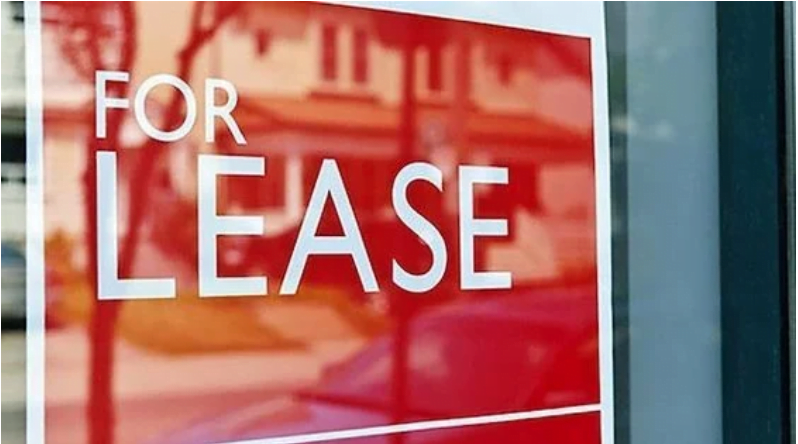
by Phill Tomlinson | Nov 9, 2021 | All Articles, Buying, Investing, Leasing
Bustling skyscrapers and crowded offices were once a common sight in the pre-COVID-19 world. However, the COVID-19 pandemic has led millions of Americans to abandon their offices in favor of working from home. This shift is not merely a short-term response but rather a permanent change in lifestyle, especially with the rise of remote work even after the pandemic subsides.
The Shift to Remote Work
According to a survey by KPMG, a global network of professional firms, more than two-thirds (68%) of prominent CEOs plan to reduce their office spaces. The pandemic has shown that employees can succeed without being confined to cubicles or traditional office settings. This raises questions about the value of expensive office spaces, particularly in high-cost cities like New York, San Francisco, and Los Angeles. KPMG’s CEO, Paul Knopp, noted that home-based and virtual work environments have proven effective and productive.
As companies adapt to this new reality, they are investing heavily in digitalizing workplaces and supporting remote employees. Corporations are accelerating their shift to virtual models, which are here to stay. This trend includes increased use of automation and artificial intelligence to enhance productivity. The modernization and digitalization of the workplace, spurred by COVID-19, are driving companies to reconsider the need for expensive office space.
The Evolution of Office Spaces
Even before the pandemic, there was a growing movement towards remote work. The idea that expensive office spaces are becoming obsolete has gained traction, especially as businesses recognize the high overhead costs associated with maintaining physical offices. However, this doesn’t mean office spaces are entirely gone. Instead, they have evolved. The concept of virtual and digital office spaces has allowed companies to grow rapidly and capitalize on new opportunities.
While some businesses have thrived in the remote work environment, others have struggled or shut down entirely. With COVID-19 cases continuing to rise, remote work remains a focal point for companies looking to survive. However, the isolation and lack of in-person interaction have led many employees to miss the camaraderie of a physical workplace. For forward-thinking investors, these competing forces present attractive opportunities for investment.
The Continued Relevance of Office Spaces
Despite the shift towards remote work, office spaces are not destined to disappear. For instance, in mid-2021, when states lifted stay-at-home orders, companies cautiously allowed white-collar workers to return to office buildings. Although many employees worked from home during the pandemic, companies like Facebook, Google, and Morgan Stanley plan to continue offering telework options even after the crisis ends. Analysts predict that office spaces will still be necessary, especially in the short term, to accommodate social distancing requirements.
In the long run, companies will likely want most employees back in the office to foster collaboration and morale. The home, after all, isn’t an office and may not provide an adequate workspace for everyone. For example, in May 2020, Google provided employees with a $1,000 allowance to purchase home office equipment. However, this amount may not be enough to create a fully functional home office, and not all homes are equally equipped for remote work.
The Challenges of Home-Based Work
The sudden shift to virtual work has also highlighted disparities among employees. Those in managerial roles often have the resources to create comfortable home offices, while rank-and-file employees may struggle with limited space and equipment. These challenges suggest that office spaces will remain relevant, as they provide a more equitable work environment for all employees.
Conclusion
While the COVID-19 pandemic has accelerated the shift towards virtual work, it does not signal the end of office spaces. The advantages of physical offices, such as fostering productivity and collaboration, ensure they will continue to play a vital role in the business world. Instead of facing extinction, office spaces are evolving to meet new demands, becoming more affordable and essential than ever.
Even after outlining all the information above, writing a letter of intent (LOI) can still seem daunting. That’s why the Leveraged CRE Team at Commercial Properties, Inc. is here to help locate commercial space for lease and assist in using a letter of intent to land such space. Contact us at (480) 330-8897 or send us an email at request@leveragedcre.com.
Need assistance with your 1031 Exchange or DST? We’ve got you covered!
We’ve prepared a comprehensive, free e-book designed to guide you in achieving your long-term business goals or acquiring that dream property you’ve been eyeing.

Meet The LeveragedCRE Investment Team
Phill Tomlinson and Eric Butler are seasoned commercial real estate brokers with over 44 years of combined experience. They lead the LeveragedCRE Investment Team at Commercial Properties, Inc. (CPI) in Scottsdale, Arizona, specializing in investment sales and tenant/landlord representation across the Phoenix and Scottsdale submarkets.
The team leverages their extensive knowledge and expertise to help investors and property owners maximize their returns and navigate complex real estate transactions with confidence.
Stay informed with the latest in Commercial Real Estate strategies designed to enhance your income property investment results by bookmarking www.leveragedcre.com. Let us help you stay ahead in the market!
[i] https://home.kpmg/xx/en/home/media/press-releases/2021/03/nearly-half-of-global-ceos-dont-expect-a-return-to-normal-until-2022-ceo-outlook-pulse.html
[ii] https://home.kpmg/th/en/home/media/press-releases/2021/03/press-release-ceo-outlook-pulse-2021-en.html

by Phill Tomlinson | Nov 5, 2021 | All Articles, Investing, Leasing
In the market, tenants generally fall into two categories: good and bad. While great tenants provide a positive experience with minimal concerns, problematic tenants can cause issues with payment, maintenance, demands, and more. Therefore, finding the right tenants can feel like treasure hunting. The process can be time-consuming, draining, and complex, especially if you are new to the experience. However, with patience and the right strategies, the outcome can be rewarding.
To help you in this endeavor, here are the three best ways to find good tenants for your commercial real estate (CRE) property.
1. Study the Market
If you’re in the early stages of vacancy and preparing your property’s financial statements (proforma), it’s crucial to study the market. This is especially helpful for first-time property owners or those new to the leasing business. By understanding standard rates, provisions, and amenities, you can evaluate your property’s quality and adjust your lease rate accordingly. Aligning your rate with current market trends can give you a competitive advantage.
2. Present a Well-Groomed Property
As a CRE property owner, never underestimate the power of a first impression. A well-maintained property can significantly influence potential tenants to choose your location for their business. Improving your property’s appearance and functionality makes it more attractive and convenient for your target market. This includes keeping up with maintenance, considering the design to align with potential businesses, securing useful amenities, and promoting your location as a hub for consumer traffic.
In addition to aesthetics, ensure that all utilities are in top condition. This standard protocol in marketing your property can elevate your chances of attracting more potential tenants. When your property is well-prepared, you may find yourself being pursued by tenants rather than having to seek them out.
3. Employ a Commercial Real Estate Broker
Once you’ve settled your proforma, decided on your lease rate, and prepared all necessary documents, the next step is to hire a commercial leasing broker. These professionals serve as intermediaries between CRE owners and potential tenants. Hiring a broker is one of the easiest ways to find good tenants for your property when the need arises.
Advertising:
Your broker will handle the advertising, starting with posting your property online. While free-listing sites are available, a good leasing broker will use premium paid sites to market your property. These sites attract targeted tenants, though they also come with competition. Social media can also be a powerful tool for advertising, allowing brokers to target specific audiences.
Brokers don’t just rely on online listings; they also make cold calls, canvas existing tenants within a 5-mile radius, and book property tours. These efforts help manage transactions and negotiations with potential tenants. Keep in mind that advertising your property online requires patience. The availability of nearby spaces and the average market duration for space will influence how long it takes to find the right tenant.
Matching Clients to Your Preferences:
Working with a professional broker allows you to specify your tenant preferences. While the goal is to gather as many interested applicants as possible, communicating your preferences to your broker ensures they can efficiently target the right tenants. This saves time and helps match you with tenants who fit your criteria.
Brokers have connections with numerous potential tenants and work hard to find suitable properties for them. This simplifies the process, allowing your broker to promptly match you with a potential lessee that meets your preferences.
More Efficient Negotiations:
If you’re also working with a commercial lawyer, they can collaborate with your broker to ensure a seamless and convenient process. This includes negotiating payment and commission terms. Having two professionals on your side gives you a significant advantage.
Ultimately, while you can rely on professional help, the final decision on your lessee will depend on your judgment. As a CRE property owner, you want a long-term, committed tenant with a positive leasing history who negotiates fairly. When you find such a tenant, you’ll know you’ve secured a good one.
Even after outlining all the information above, writing a letter of intent (LOI) can still seem daunting. That’s why the Leveraged CRE Team at Commercial Properties, Inc. is here to help locate commercial space for lease and assist in using a letter of intent to land such space. Contact us at (480) 330-8897 or send us an email at request@leveragedcre.com.
Need assistance with your 1031 Exchange or DST? We’ve got you covered!
We’ve prepared a comprehensive, free e-book designed to guide you in achieving your long-term business goals or acquiring that dream property you’ve been eyeing.

Meet The LeveragedCRE Investment Team
Phill Tomlinson and Eric Butler are seasoned commercial real estate brokers with over 44 years of combined experience. They lead the LeveragedCRE Investment Team at Commercial Properties, Inc. (CPI) in Scottsdale, Arizona, specializing in investment sales and tenant/landlord representation across the Phoenix and Scottsdale submarkets.
The team leverages their extensive knowledge and expertise to help investors and property owners maximize their returns and navigate complex real estate transactions with confidence.
Stay informed with the latest in Commercial Real Estate strategies designed to enhance your income property investment results by bookmarking www.leveragedcre.com. Let us help you stay ahead in the market!

by Phill Tomlinson | Nov 2, 2021 | All Articles, Buying, Exchanges (1031 & DST), Investing, Selling
The concept of a 1031 exchange can be complex, especially for those unfamiliar with real estate investing. This blog will break down the differences between 1031 exchanges and Delaware Statutory Trusts (DSTs), helping you navigate these crucial investment tools.
Why Choose Real Estate Investing?
Real estate offers several distinct advantages for investors. First, it allows the use of leverage to enhance returns. Second, there are significant tax benefits, such as “non-cash” expenses like depreciation. Additionally, investors can defer capital gains taxes through a 1031 exchange, making real estate an attractive option.
What is a 1031 Exchange?
A 1031 exchange refers to the IRS code that provides the guidelines for “like-kind” transactions. These transactions enable real estate investors to grow and diversify their portfolios while minimizing federal income tax implications. Under Section 1031, the exchange must involve real property held for productive use in trade, business, or investment. The exchanged property must be of like-kind.
Investors often use 1031 exchanges to defer capital gains taxes and other tax liabilities, including state capital gains taxes and depreciation recapture taxes. As long as investors reinvest their capital into other forms of real estate, they can continue to defer these taxes. The IRS permits subsequent exchanges whenever a property is sold, allowing an investor’s equity to grow without immediate tax consequences.
Exploring Delaware Statutory Trusts (DSTs)
A Delaware Statutory Trust (DST) offers a unique mode of real estate investment. It allows individuals to invest in large commercial properties they might not be able to acquire on their own. These properties often match the type and quality of those owned by large institutional investors, such as pension funds and insurance companies.
DSTs offer 1031 exchange eligibility for investors at both the entry and exit points, a benefit not typically available with other co-ownership structures. Additionally, DSTs can provide tax-advantaged monthly income, often sheltered from income tax liabilities. Essentially, DSTs are professionally managed passive investments, encompassing a range of property types, including industrial buildings, multi-family apartment complexes, and medical offices.
Key Advantages of DST 1031 Exchanges
DST 1031 exchanges provide several benefits for real estate investors:
- 1031 Exchange Eligible: DSTs are treated as direct real estate ownership under Section 1031, making them eligible for 1031 exchanges both at investment and liquidation.
- Institutional-Grade Assets: By investing in a DST, investors can acquire equity ownership in significant, high-quality assets typically beyond their reach as individuals. This allows them to own a portion of an institutional-grade property.
- Opportunities for Diversification: Investors can choose the amount they wish to invest in a DST, allowing them to spread their investment across multiple properties. This diversification helps reduce the risk of loss.
- Earnings and Distributions: DSTs maintain cash reserves for unexpected expenses. However, earnings above these reserves are distributed to beneficiaries regularly.
- Sizing Flexibility: DSTs allow investors to invest the exact amount needed to satisfy 1031 exchange requirements, avoiding taxable excess funds.
- Non-Recourse Debt: DSTs often include non-recourse mortgage financing, protecting the investor’s assets outside the loan.
Potential Drawbacks of DST 1031 Exchanges
While DST 1031 exchanges offer many benefits, they also come with certain drawbacks:
- Lack of Control: Investors in a DST do not have operational control over the property. This may appeal to those seeking a passive investment, but others may prefer more control.
- Inability to Raise New Capital/Refinance: Once the DST offering closes, no further contributions can be made by current or new investors. Major expenses can significantly impact profits, and changes in occupancy or rent can affect cash flow.
- Limited Liquidity: DSTs typically have moderate to long-term hold periods, usually between five to ten years, meaning they are not easily liquidated for cash.
Conclusion: Making the Right Investment Choice
Both 1031 exchanges and Delaware Statutory Trusts are powerful tools for real estate investors. However, the details and execution of these strategies can be complex. Therefore, investors considering these options should consult with real estate investment and tax professionals to ensure they make informed decisions.
If you find these concepts overwhelming, working with a reputable commercial broker and a knowledgeable company can simplify the process and help you navigate the ins and outs of 1031 exchanges and DSTs.
Even after outlining all the information above, writing a letter of intent (LOI) can still seem daunting. That’s why the Leveraged CRE Team at Commercial Properties, Inc. is here to help locate commercial space for lease and assist in using a letter of intent to land such space. Contact us at (480) 330-8897 or send us an email at request@leveragedcre.com.
Need assistance with your 1031 Exchange or DST? We’ve got you covered!
We’ve prepared a comprehensive, free e-book designed to guide you in achieving your long-term business goals or acquiring that dream property you’ve been eyeing.

Meet The LeveragedCRE Investment Team
Phill Tomlinson and Eric Butler are seasoned commercial real estate brokers with over 44 years of combined experience. They lead the LeveragedCRE Investment Team at Commercial Properties, Inc. (CPI) in Scottsdale, Arizona, specializing in investment sales and tenant/landlord representation across the Phoenix and Scottsdale submarkets.
The team leverages their extensive knowledge and expertise to help investors and property owners maximize their returns and navigate complex real estate transactions with confidence.
Stay informed with the latest in Commercial Real Estate strategies designed to enhance your income property investment results by bookmarking www.leveragedcre.com. Let us help you stay ahead in the market!





